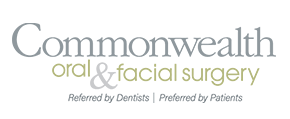Sleep apnea is the term that describes a condition in which the body is unable to obtain adequate amounts of oxygen while sleeping. The lack of oxygen and the inability to breathe freely is often related to a blockage within the airway (mouth, throat, and/or nose) and is more specifically known as Obstructive Sleep Apnea.
How Obstructive Sleep Apnea Affects the Body
When the airway is constricted or blocked by the relaxed tongue or the soft palate, the body struggles to receive oxygen. The lack of oxygen forces the brain to awaken the body in order to breathe. The process of sleeping and awakening can occur several times each minute, throughout the night, resulting in gasping, snoring, and a very low quality of sleep. With a decreased level of oxygen in the blood and without adequate rest at night, sleep apnea sufferers are at risk for heart disease, grogginess during the day, irritability, weight gain, depression and stroke.
Surprisingly, many sleep apnea sufferers are unaware that they are affected by this problem. There are certain symptoms which may indicate the presence of sleep apnea, but a true diagnosis can only be determined by a professional. An oral surgeon can perform a thorough consultation and offer customized treatment alternatives to bring your sleep apnea under control.
Treating Obstructive Sleep Apnea
With a detailed clinical exam of your head, mouth, nose, and throat, the source of your airway obstruction can be identified. Further details regarding your condition can be uncovered with the help of fiber-optic diagnostic cameras. An overnight sleep study might also be recommended. According to the cause and severity of your sleep apnea, the following treatments are available:
Initially, a CPAP machine may be recommended to deliver pressurized oxygen through the nose at night. This commonly used device helps to gently keep the airway open as you sleep and can be customized for a comfortable fit.
If surgery is indicated, the uvulo-palato-pharyngo-plasty (UPPP) procedure can be performed, in which the soft palate is surgically reshaped to eliminate the obstruction. This procedure is sometimes performed with a laser (Laser Assisted uvulo-palato-plasty- LAUP).
To tighten the tissue and reduce vibrations, the soft palate can also be treated with a radio-frequency probe.
For the most complex obstructive sleep apnea cases, orthognathic surgery may be used to reposition the upper and lower jaw in order to open the airway.
The First Step
A consultation with Dr. Gregory M. Zoghby, who was awarded the 2014 Bedside Manner Award presented by Our Health Richmond Magazine, is the first step towards overcoming obstructive sleep apnea. Call to schedule your appointment today.

